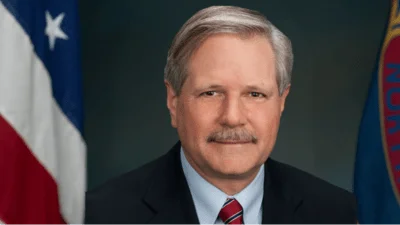Senator Kevin Cramer, US Senator for North Dakota | Senator Kevin Cramer Official website
Senator Kevin Cramer, US Senator for North Dakota | Senator Kevin Cramer Official website
The Department of Defense (DOD) is under scrutiny for its acquisition system, which critics argue is slow and inefficient. This concern was addressed during a Senate Armed Services Committee hearing focused on defense innovation and acquisition reform. The goal is to tackle persistent challenges in the DOD's procurement processes.
Testimonies were heard from three key figures: James Geurts, former Assistant Secretary of the Navy for Research, Development, and Acquisition; Shyam Sankar, Chief Technology Officer and Executive Vice President of Palantir Technologies; and Nathan Diller, Chief Executive Officer of Divergent Technologies.
Senator Kevin Cramer (R-ND), co-chair of the Senate Defense Modernization Caucus, emphasized the urgency of implementing effective technology and acquisition reforms to keep pace with global adversaries like China. He referenced the protracted process surrounding the cloud computing contract known as Jedi. Initially contested between Microsoft and Amazon in 2019, it was eventually awarded to Microsoft after delays caused by protests.
Cramer expressed frustration over these delays: “Five years later, we finally have multiple companies doing cloud computing,” he stated. He criticized how protests can hinder modernization efforts: “I was very frustrated by the ability of a company who didn't win the contract […] to protest […] But then we fast forward to today...”
Cramer questioned witnesses about potential improvements to the protest regime while maintaining competition without compromising national security.
Geurts supported Cramer's view on limiting protests: "One thing I suggested early on was you get one bite at the apple," proposing restrictions on repeated protests. Sankar agreed that current avenues are often abused and suggested practical solutions such as conducting more parallel evaluations or "bake-offs."
Diller highlighted trust-building as essential in addressing protest issues: “When we look at these protests… How do we slowly build trust? Because at the core, it's a trust issue.”
The discussion underscores ongoing concerns about DOD's procurement processes and seeks pathways toward more efficient defense innovation implementation.





 Alerts Sign-up
Alerts Sign-up